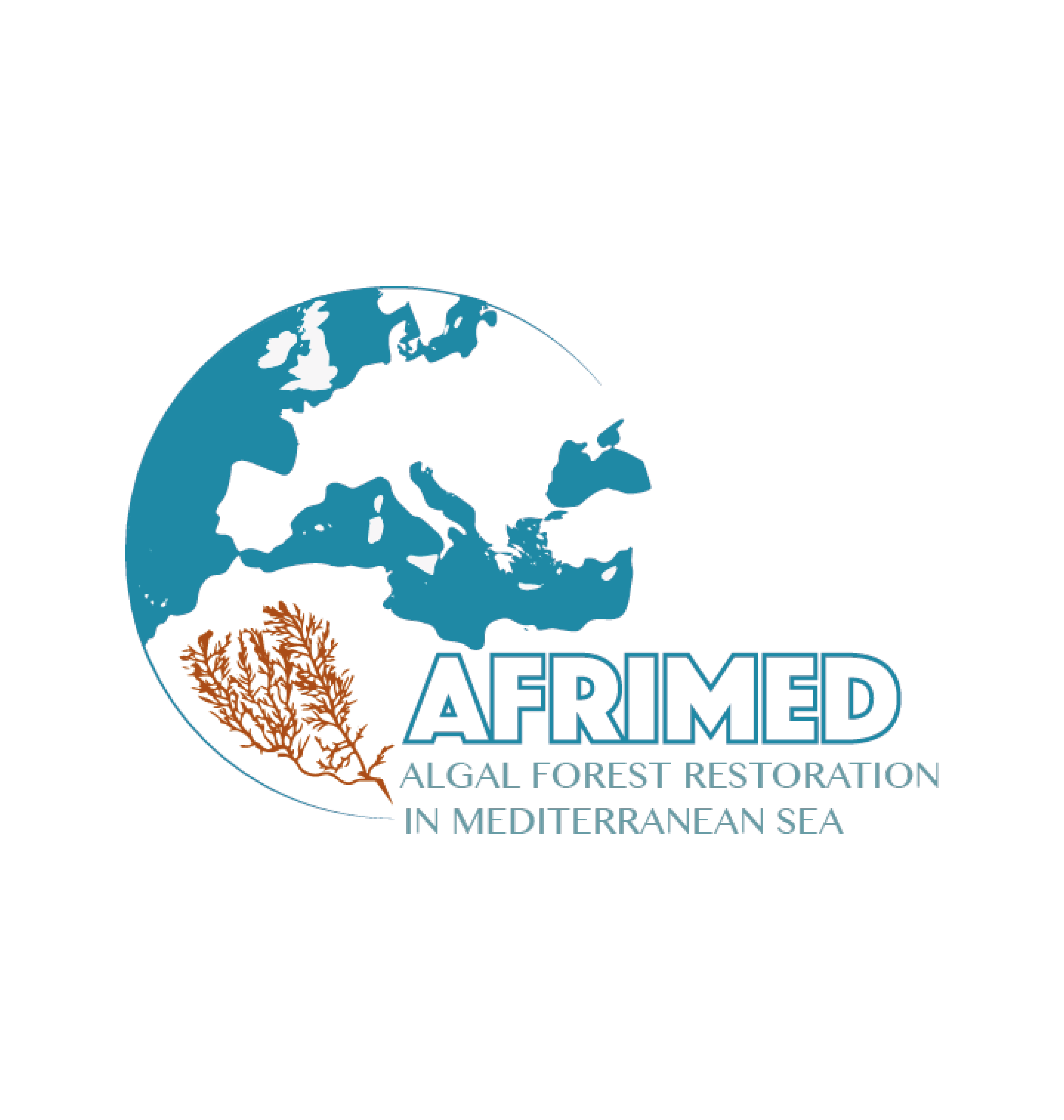
Hybrid: Naples, Italy + Online, 17 January 2022.
In the framework of AFRIMED project, the Business Club fosters interactions among stakeholders, to share information and solicit input regarding the recent advances on marine forests restoration. The final aim of the meeting is to share experiences, create a network of stakeholders and produce a shared vision of the needs and challenges of their conservation and restoration in the Mediterranean Sea.
New findings of the AFRIMED project and the current state of knowledge will be presented (see the 1st Stakeholder meeting here), along with more applied contributions from different stakeholders (contact us before 31 December if you want to contribute with a short presentation).
An active discussion and common work will allow the updating of the perceptions, interests and priorities of the participants, focussing on knowledge gaps, management needs, Blue Economy opportunities and particular challenges linked to scaling up the actions of macroalgal forests restoration in the Mediterranean Sea.
The meeting will follow a hybrid format, being held in presence at the Stazione Zoologica Anton Dohrn, Naples, Italy, and online.
Attendance is free, but registration is required.
| Draft agenda 17 January afternoon (14:00-18:00) |
| – Introduction to the meeting – Results achieved in AFRIMED – Presentations of stakeholders (experiences, ideas, needs and challenges) – Discussion – Conclusions of the meeting – Social dinner |
Website: afrimed-project.eu
Contact: afrimedbusinessclub@gmail.com
Algal Forest Restoration In the MEDiterranean Sea (AFRIMED)
Grant agreement n. EASME/EMFF/2017/1.2.1.12/S4/01/SI2.789059